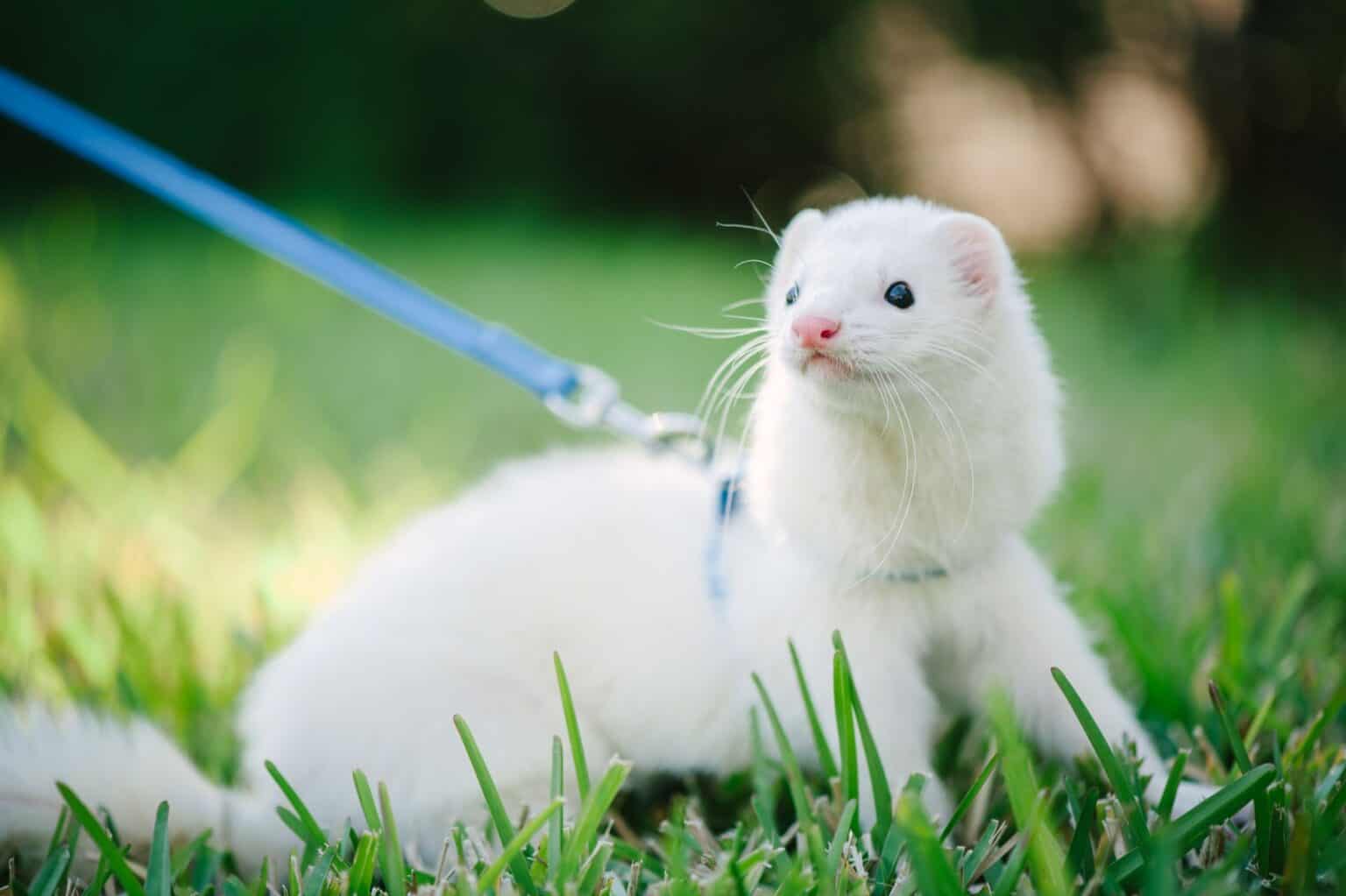Essential Tips for First-Time Ferret Owners

Ferrets have endeared themselves to humans for many decades, and not just for their extremely high cute factor. Their super-smarts have led them to such incredible opportunities as running sound and lighting cables around Buckingham Palace prior to Princess Diana’s epic wedding.
Part of the weasel family, ferrets got their name from the Latin word furittus, which means “little thief,” probably because of their natural affinity for stealing and hiding things. There are so many reasons to love ferrets, and our essential tips for first-time ferret owners give you some help if you’re considering bringing one into your home.
A Realistic Look
Ferrets easily win people over, but without a heavy dose of preparation, understanding, and consideration, the reality of owning a pet ferret can be vastly different from initial expectations.
All the Business
Did you know that a group of ferrets is called a “business?” Ferrets experience loneliness when they are single pets. Adopting more than one ferret at once, especially if they are already bonded, supports the comfort and well-being of both animals. Given the chance to play together freely, ferrets can keep each other (and their owner) very entertained!
Little Hands
Children typically adore ferrets, but not all ferrets love kids. They are actually quite sensitive to little hands, and can even suffer injuries from a tight grip or unexpected falls. They may also interpret a child’s play as frightening. It’s best to keep ferrets in a home without small children, or have very clear rules that protect the ferret’s health and safety.
Getting Serious
There’s no mistaking their natural musky odor. Most adoptable ferrets are neutered and may have had their anal glands removed, too. Both procedures can greatly reduce the smell, but the musky oils in their skin simply come with the territory.
The Nose Knows
Ferrets have a well-developed sense of smell, and have used it to “ferret out” prey like rodents. Ferrets are obligate carnivores. We can help you find the right food products that meet their nutritional needs, tastes great, and keeps them lean and strong.
Habitat and Behavior
A safe enclosure or cage should have multiple levels for climbing, a soft, washable flooring surface, and secure latches. Hammocks, perches, ramps, and toys are all part of a happy ferret house. A conveniently-placed litter box will help facilitate their training.
Ferrets enjoy freedom outside their enclosure, but their habits and interests can really get them into trouble. Some ferrets find themselves behind fridges, inside recliners, and inside dryer vents. When your ferret has “free time” to explore outside their cage, they need constant supervision. Ferret-proofing the house (no wires or small objects) is essential before you allow them to roam.
Veterinary Care For Ferrets
The health, safety, and vitality of your pet ferret hinges on regular veterinary care. Annual check-ups help us stay in front of any possible issues, update vaccinations, and improve wellness. Increase appointments to twice every year around age 5 to help support their senior pet needs.
If you have additional questions, please give us a call at (512) 263-9292. Our veterinarians love to support the needs of exotic pets.
